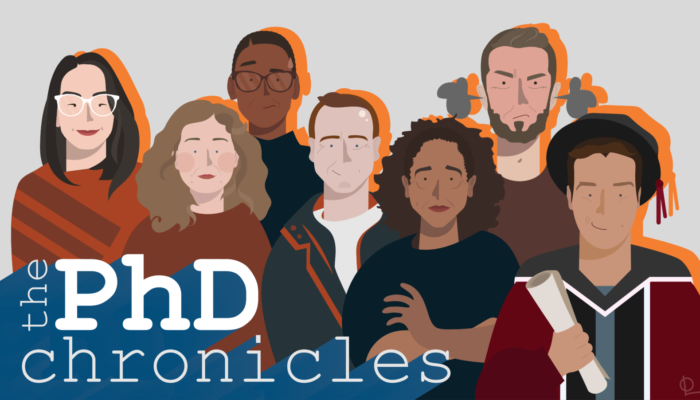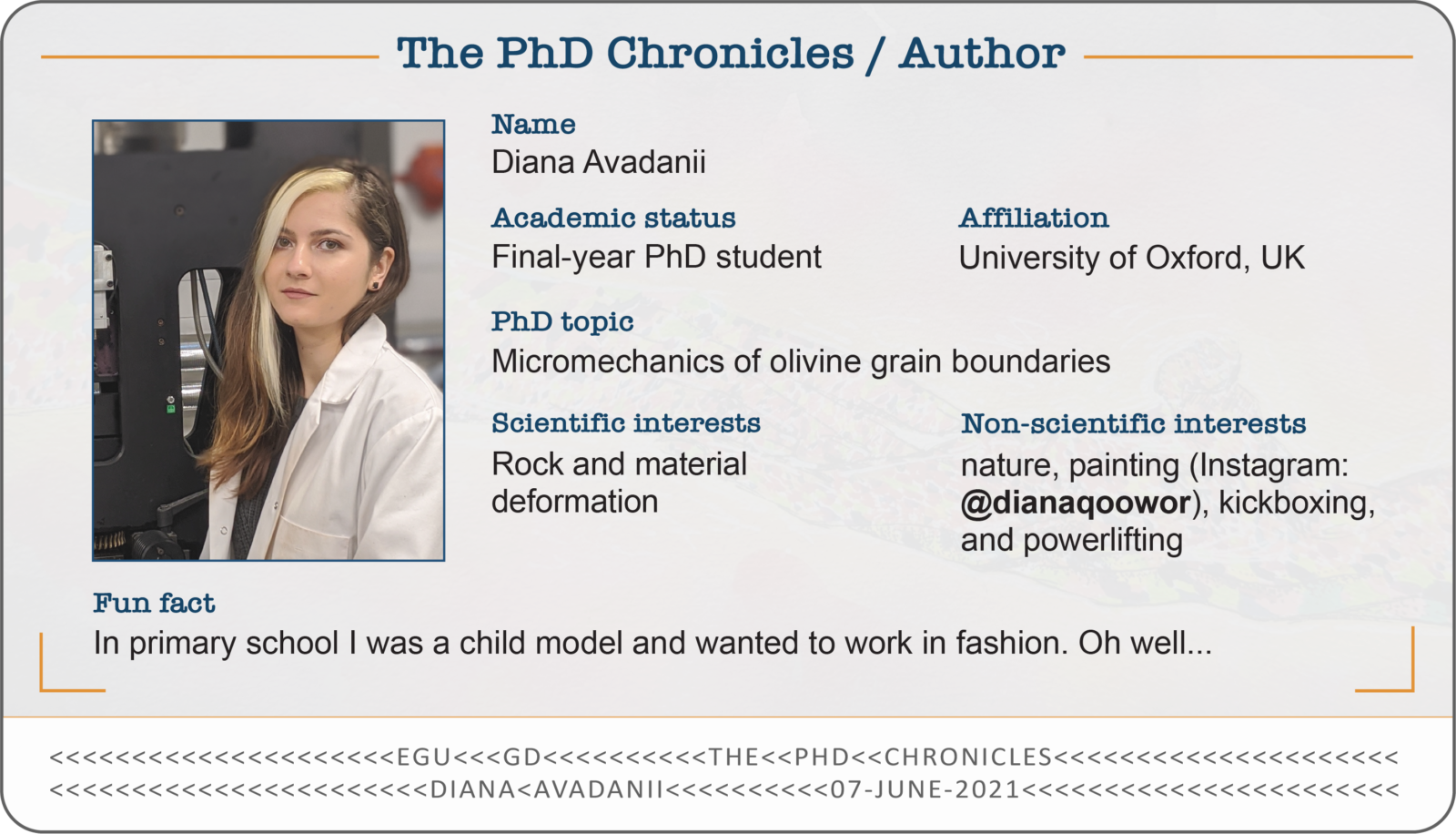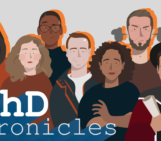
There are many variables when applying for a PhD programme (country, system, length, funding, project, etc.). In regards to choosing a supervisor, I did my best to make an educated choice, and I really lucked out in terms of the people that I am working with. In the past 3.5 years, I have received scientific and professional support, mentorship, networking opportunities, creative encouragement, and much more from my supervisors.
Similarly to how Leo Tolstoy’s ‘Anna Karenina’ starts, we can think of doctoral students: ‘Happy PhD students are all alike; every unhappy PhD student is unhappy in their own way’. That statement is definitely something I have observed within my peers. While there are many aspects to a fulfilling PhD, the relationship with the supervisor(s) is one of the main variables contributing to PhD success [1]. In my opinion, the prospective supervisor(s) is an important variable at an individual level for PhD applicants, and a key factor when institutions design the training programmes for the next generation of scientists and thinkers.
Happy PhD students are all alike; every unhappy PhD student is unhappy in their own way

Let us look at how I will use the phrase ‘successful PhD’ in this blog entry. Conventionally, a successful PhD is not only a completed degree to the requirements of each institution, but also a PhD that has publishable outcomes in peer-reviewed scientific journals. Unsurprisingly, I happen to disagree with the second part. Beyond passing the degree requirements, success during a PhD is up to the internal definition of the candidate. For some people ‘success’ could mean publishing papers, while for some others it might mean pivoting their career into a different field, living in another country, or an opportunity to do some cool science just for fun. In order to accomplish your goals during your PhD you absolutely need to be on the same page as your supervisor(s) in your definition of ‘success’ and to have their support.
There is strong evidence pointing out that the success within academia is heavily influenced by PhD mentors (see literature review in [1-3]). The first mentor is the project supervisor(s). They are the ones who set you up for early success (or not) in the way they shape the PhD project, support you attending conferences, introduce you to their academic peers, and recommend you for committees/panels etc. Later in the PhD, it is the supervisor(s) who helps you navigate the publication process, and most importantly, recommends you for jobs in academia and/or industry in a formal and/or informal manner.
Surveys of PhD students indicate that they experience depression and anxiety at higher rates than the general population (references in [4-5]). Amongst the many factors contributing to the ill mental health of PhD students is their relationship with their supervisor. In some cases, the supervisor can be the primary cause for an overall unsatisfactory PhD experience and ill mental health through bullying and harassment [6], unprofessionalism and poor management skills (e.g., [6]) or just general disinterest in the project and/or student. In other instances, the student-supervisor relationship can turn toxic if the supervisor shows lack of understanding and/or support when life outside the PhD happens (and yes, it does) and the student needs to access medical or maternity leave, vacation time, peer support networks, or financial help.
Most importantly, your PhD supervisor(s) will be the key and main scientific influence in your early career from a scholarly point of view. While becoming a scientist is about forming one’s independent thinking, I think it’s fair to say that early career researchers are heavily influenced by the approach of their supervisors. I find this aspect quite thrilling; being a PhD student sometimes makes me feel like Michaelangelo’s apprentice: learning the craft while looking for my own style and contributing to the bigger legacy of the research groups I am part of. However, the nature of this individualised style of training new generations has offered a shield for institutions to guard faculty members from mandatory management training, implicit bias training, and overall accountability in students’ experience. While some students (like me) have supervisors who are both brilliant scientists and wonderful mentors, many other students do not achieve their goals during their degree and might have an awful time on top of it due to the nature of their relationship with their supervisor [2]. I find it a flaw in the educational system that sometimes these two categories of students share the same building.
Thus, on an individual level, in my opinion, prospective PhD students should assign more decisional weight to the supervisors’ managerial and leadership qualities, compared to how catchy a project sounds or the prestige of an institution/programme. I know this is hard and overwhelming for prospective applicants, and one can not control into which PhD programmes you get accepted into. However, I do think prospective students can make educated choices when signing up to one PhD over another. Some common practices done by applicants include: informal lab visits or video calls, informal chats with current or past members of the research group, and informal talk with collaborators or other people from the sub-field.

As I sat down at the microscope, I couldn’t help but wonder: how would I have navigated this pandemic without my supervisors???
The realisation of how powerful the supervisor-student relationship is for an individual and for training the next generation of scientists has major implications at institutional level. Many of the resources included here contain excellent recommendations for institutions ([1], [2], [5] and references therein), but since this is The Internet, here are my 2 cents. Institutions really ought to pay attention to the matters raised by their student body, and implement meaningful changes in liaison with faculty. Students always end up with so many surveys to fill, elect representatives, create working groups, table discussions for matters affecting us within departments and scientific societies, and yet, the relationship with their supervisor remains the ‘elephant in the room’ with no action taken to improve student-supervisor relationships.
The classical institutional matryoshka of committees leads to change on geological timescales and heavily impacts efforts of diversity, equality, and inclusion within STEM. In my ideal world, institutions would design PhD programmes with at least two supervisors. This approach could promote scientific interdisciplinarity, relationship balance, and wider support for the student. Having to manage multiple scientific work relationships is also more relevant in mirroring the collaborative aspect of scientific research. Furthermore, all institutions should set-up mentorship and career networks based on gender and race, such that the student would be exposed to a variety of working styles and approaches.
Institutions should facilitate students raising issues in their relationship with their supervisor in a safe manner, and—hot take—implement a neutral and standardised way for students to provide feedback to their supervisors. In fact, the current lack of a feedback loop between supervisors and students can be inferred from reports of differences in what supervisors think they have communicated vs what the students received (e.g., [1]). A lot of the dissatisfaction of PhD students is related to the little time they receive from (most likely overworked) supervisors [6], so of course in my ideal institution, I would hire more faculty members, unload existing faculty, facilitate management and communications workshops, and promote good supervision examples within the department. While there has been an increase in institutional awareness of toxicity in academia and related mental health problems, the truth is, one extra departmental yoga class or mindfulness podcast is not a long-term fix for work-related issues faced by students or supervisors.
The PhD student-supervisor relationship remains the ‘elephant in the room’, with no action taken to improve it
I think there is broad agreement that PhDs are not easy, and completing one comes with personal, emotional, and financial investments. However, the intellectual difficulty of a PhD degree should not be a shield to perpetuate toxic, abusive, or unprofessional behaviours. In the past 3.5 years I have witnessed many students navigate the ups and downs of their PhDs. To circle back to ‘Anna Karenina’, all the students I know are unhappy in their own way: life happens, experiments are not working, papers are rejected, or there are difficult (work) relationships. However, all the happy-ish* and satisfied PhD students have one thing in common: the privilege of excellent supervisor(s).
*I am yet to encounter a fully-happy PhD student
[1] Orellana, M. L., Darder, A., Pérez, A., and Salinas, J. (2016). Improving doctoral success by matching PhD students with supervisors. International Journal of Doctoral Studies, 11, 87-103. Retrieved from http://ijds.org/Volume11/IJDSv11p087-103Orellana1629.pdf [2] Andriopoulou, P. and Prowse, A. (2020). Towards an effective supervisory relationship in research degree supervision: insights from attachment theory. Teaching in Higher Education, 25(5), 648-661. https://doi.org/10.1080/13562517.2020.1731449 [3] Seeber, M., and Horta, H. (2021). No road is long with good company. What factors affect Ph. D. student’s satisfaction with their supervisor? Higher Education Evaluation and Development, ahead-of-print, https://doi.org/10.1108/HEED-10-2020-0044 [4] The mental health of PhD researchers demands urgent attention (2019). Nature (editorial), 575, 257-258, doi: https://doi.org/10.1038/d41586-019-03489-1 [5] Webb, M. (2018). Improving PhD student completion rates: Supporting doctoral student wellbeing with 'PhD MOTs'. STEM Conference 2018. https://www.advance-he.ac.uk/knowledge-hub/improving-phd-student-completion-rates-supporting-doctoral-student-wellbeing-phd-mots [6] Woolson, C. (2019). A message for mentors from dissatisfied graduate students. Nature (career feature), 575, 551-552. doi: https://doi.org/10.1038/d41586-019-03535-y
![]()
On each first Monday of the month, The PhD Chronicles blog series gives a special place for PhD researchers to share their successes, challenges, and failures. Would you like to share your story? Contact us here.
![]()






